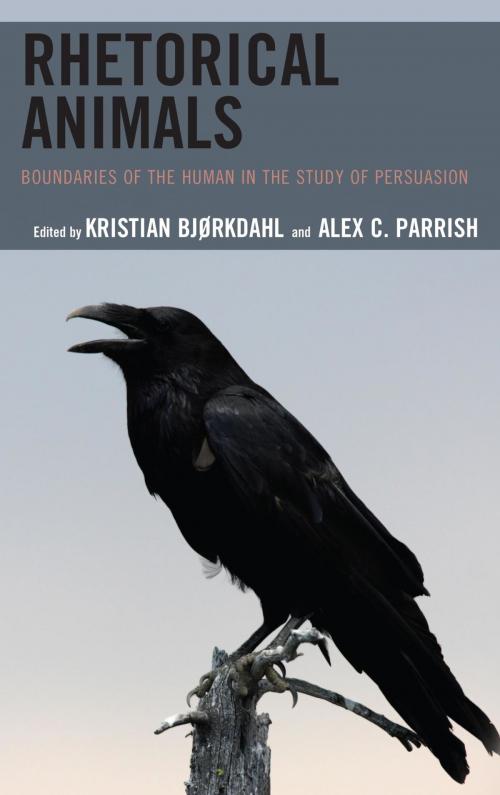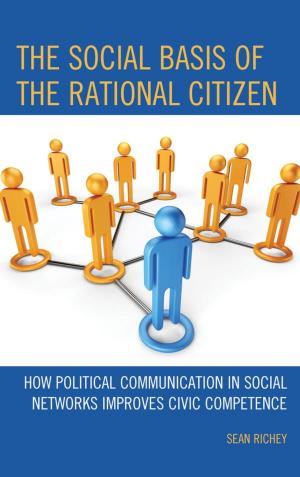Rhetorical Animals
Boundaries of the Human in the Study of Persuasion
Fiction & Literature, Literary Theory & Criticism| Author: | Kristian Bjørkdahl, Alex C. Parrish, Marilyn M. Cooper, T. Jake Dionne, Ellen W. Gorsevski, Iklim Goksel, Dustin A. Greenwalt, David R. Gruber, Andrea Gutiérrez, Susan Hafen, Matthew Lerberg, Kelin Loe, Emily Plec, Jennifer Saltmarsh, Hayley Zertuche | ISBN: | 9781498558464 |
| Publisher: | Lexington Books | Publication: | November 30, 2017 |
| Imprint: | Lexington Books | Language: | English |
| Author: | Kristian Bjørkdahl, Alex C. Parrish, Marilyn M. Cooper, T. Jake Dionne, Ellen W. Gorsevski, Iklim Goksel, Dustin A. Greenwalt, David R. Gruber, Andrea Gutiérrez, Susan Hafen, Matthew Lerberg, Kelin Loe, Emily Plec, Jennifer Saltmarsh, Hayley Zertuche |
| ISBN: | 9781498558464 |
| Publisher: | Lexington Books |
| Publication: | November 30, 2017 |
| Imprint: | Lexington Books |
| Language: | English |
For this edited volume, the editors solicited chapters that investigate the place of nonhuman animals in the purview of rhetorical theory; what it would mean to communicate beyond the human community; how rhetoric reveals our "brute roots." In other words, this book investigates themes that enlighten us about likely or possible implications of the animal turn within rhetorical studies. The present book is unique in its focus on the call for nonanthropocentrism in rhetorical studies. Although there have been many hints in recent years that rhetoric is beginning to consider the implications of the animal turn, as yet no other anthology makes this its explicit starting point and sustained objective. Thus, the various contributions to this book promise to further the ongoing debate about what rhetoric might be after it sheds its long-standing humanistic bias.
For this edited volume, the editors solicited chapters that investigate the place of nonhuman animals in the purview of rhetorical theory; what it would mean to communicate beyond the human community; how rhetoric reveals our "brute roots." In other words, this book investigates themes that enlighten us about likely or possible implications of the animal turn within rhetorical studies. The present book is unique in its focus on the call for nonanthropocentrism in rhetorical studies. Although there have been many hints in recent years that rhetoric is beginning to consider the implications of the animal turn, as yet no other anthology makes this its explicit starting point and sustained objective. Thus, the various contributions to this book promise to further the ongoing debate about what rhetoric might be after it sheds its long-standing humanistic bias.















